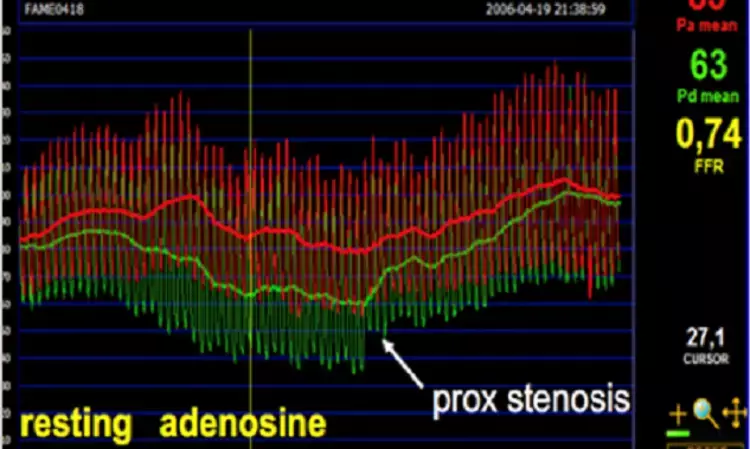- Home
- Medical news & Guidelines
- Anesthesiology
- Cardiology and CTVS
- Critical Care
- Dentistry
- Dermatology
- Diabetes and Endocrinology
- ENT
- Gastroenterology
- Medicine
- Nephrology
- Neurology
- Obstretics-Gynaecology
- Oncology
- Ophthalmology
- Orthopaedics
- Pediatrics-Neonatology
- Psychiatry
- Pulmonology
- Radiology
- Surgery
- Urology
- Laboratory Medicine
- Diet
- Nursing
- Paramedical
- Physiotherapy
- Health news
- Fact Check
- Bone Health Fact Check
- Brain Health Fact Check
- Cancer Related Fact Check
- Child Care Fact Check
- Dental and oral health fact check
- Diabetes and metabolic health fact check
- Diet and Nutrition Fact Check
- Eye and ENT Care Fact Check
- Fitness fact check
- Gut health fact check
- Heart health fact check
- Kidney health fact check
- Medical education fact check
- Men's health fact check
- Respiratory fact check
- Skin and hair care fact check
- Vaccine and Immunization fact check
- Women's health fact check
- AYUSH
- State News
- Andaman and Nicobar Islands
- Andhra Pradesh
- Arunachal Pradesh
- Assam
- Bihar
- Chandigarh
- Chattisgarh
- Dadra and Nagar Haveli
- Daman and Diu
- Delhi
- Goa
- Gujarat
- Haryana
- Himachal Pradesh
- Jammu & Kashmir
- Jharkhand
- Karnataka
- Kerala
- Ladakh
- Lakshadweep
- Madhya Pradesh
- Maharashtra
- Manipur
- Meghalaya
- Mizoram
- Nagaland
- Odisha
- Puducherry
- Punjab
- Rajasthan
- Sikkim
- Tamil Nadu
- Telangana
- Tripura
- Uttar Pradesh
- Uttrakhand
- West Bengal
- Medical Education
- Industry
FFR testing may predict persistence of angina post-PCI, TARGET-FFR study

Twenty percent to 40% of patients have persistence of angina after percutaneous coronary intervention (PCI). It is important to identify patient and procedure related factors that can predict which patients will have better chances at complete relief from angina. In this regard a recent study published in Circulation: Cardiovascular Interventions journal suggests that a role for fractional flow reserve (FFR) in determining those patients who may not get symptom relief from an intervention.
The persistence of angina after PCI is not an uncommon problem, with data suggesting that anywhere from 20% to 50% of patients still have symptoms postprocedure. The goal of the present TARGET FFR study was to identify different patient and procedural predictors of angina after PCI. The analysis included 230 patients in the TARGET-FFR trial testing angiography versus FFR to optimize PCI.
Two hundred thirty patients undergoing PCI completed the Seattle Angina Questionnaire (SAQ-7) and European quality of life–5 dimension–5 level (EQ-5D-5L) questionnaires at baseline and 3 months post-PCI. Patients received blinded intracoronary physiology assessments before and after stenting. A post hoc analysis was performed to compare clinical and procedural characteristics among patients with and without post-PCI angina (defined by follow-up SAQ-angina frequency score <100).
The study had following important findings:
1. 38.3% had angina after PCI as determined by the SAQ score.
2. Those with angina after PCI had higher rates of previous MI and PCI, as well as a higher prevalence of atrial fibrillation and current smoking.
3. They were also prescribed more antianginal medications, including oral nitrate tablets and reliever sublingual nitrate spray.
4. Interestingly, these patients also had significantly higher SAQ summary scores and worse quality of life before the procedure compared with those who responded well to treatment.
How physiologic testing comes into play?
Patients who were angina-free at 3-month follow-up had more physiologically severe lesions prior to PCI. For example, those with no angina after PCI had a preprocedure FFR of 0.56 compared with 0.62 in those with symptoms after the procedure (P = 0.003).
Coronary flow reserve and Pd/Pa (the ratio of resting distal coronary to aortic pressure) prior to PCI also were lower, indicative of more severe lesions, in those without angina after PCI.
In terms of changes with PCI, those with postprocedure angina had less improvement in FFR (mean 43.1 vs 67.0; P < 0.001). In multivariate modeling, a smaller improvement in FFR after PCI was independently associated with postprocedure angina.
How these findings can alter clinical practice?
Author Collison says “For example, [say] there’s flow limitation in this vessel, but it’s a completely diffuse gradient, putting a long stent in is really not going to move the needle in terms of physiologic improvement or response. That’s probably the key physiologic finding from the paper—if you’re only making a small marginal gain in physiology—the delta in FFR—then the likelihood is the patient is going to have persistent angina, particularly if they have more-severe and prominent symptoms coming into the procedure.”
To conclude, larger improvements in FFR following PCI were associated with less angina and better quality of life at follow-up. In patients with stable symptoms, intracoronary physiology assessment can inform expectations of angina relief and quality of life improvement after stenting and thereby help to determine the appropriateness of PCI.
Source:
Circulation: Cardiovascular Interventions
1.https://doi.org/10.1161/CIRCINTERVENTIONS.122.012511
2.https://doi.org/10.1161/CIRCINTERVENTIONS.123.013020
MBBS, MD , DM Cardiology
Dr Abhimanyu Uppal completed his M. B. B. S and M. D. in internal medicine from the SMS Medical College in Jaipur. He got selected for D. M. Cardiology course in the prestigious G. B. Pant Institute, New Delhi in 2017. After completing his D. M. Degree he continues to work as Post DM senior resident in G. B. pant hospital. He is actively involved in various research activities of the department and has assisted and performed a multitude of cardiac procedures under the guidance of esteemed faculty of this Institute. He can be contacted at editorial@medicaldialogues.in.
Dr Kamal Kant Kohli-MBBS, DTCD- a chest specialist with more than 30 years of practice and a flair for writing clinical articles, Dr Kamal Kant Kohli joined Medical Dialogues as a Chief Editor of Medical News. Besides writing articles, as an editor, he proofreads and verifies all the medical content published on Medical Dialogues including those coming from journals, studies,medical conferences,guidelines etc. Email: drkohli@medicaldialogues.in. Contact no. 011-43720751


